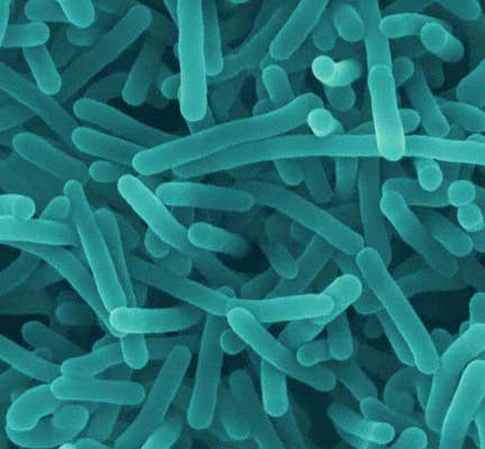What is Listeria and Listeriosis?

The recent listeriosis outbreak has sickened 139 people, killed 29 people, and one woman suffered a miscarriage. Listeria poses a serious health risk and affects all people differently. Listeria is of particular concern to pregnant women and people with suppressed immune systems. Listeria has been in the spotlight with the outbreak associated with cantaloupes. Uncertain about what listeria is? Here are the facts about listeria and how you can protect yourself from getting sick.
What is Listeria?
Listeria monocytogenes is a bacterium that is found in soil and water. Animals may carry listeria without appearing sick, and listeria can contaminate food of animal origin (such as meat or dairy products). Listeria is problematic because once it is present in a food processing facility, it can persist there for years, and it can grow in the cold temperatures of a refrigerator. Listeria is often found in raw foods, like uncooked meat and vegetables, but it can also contaminate food after it is cooked but before it is packaged. Deli meat, hot dogs, soft cheese, and smoked seafood are foods that are all at higher risk of being contaminated with listeria. Listeria can be killed by pasteurization and/or cooking.

Who is at Risk of Listeriosis?
Not all people who ingest listeria-contaminated food develop listeriosis. Pregnant women are 20 times more likely than healthy adults to become infected. Listeria is especially concerning for expecting women. Pregnant women who become infected can have premature deliveries, miscarriages, or still birth. Those who have compromised immune systems are also at increased risk for developing listeriosis. People with AIDS are 300 times more likely to become sick than people with healthy immune systems. Older adults, people with cancer, kidney disease, or diabetes, and newborn babies are also at greater risk for developing listeriosis.
Listeriosis Symptoms
Listeriosis typically causes fever and muscle aches, which can be preceded by diarrhea or other gastrointestinal problems. When you develop listeriosis, you will almost always develop an invasive infection, which is when the bacteria spread beyond the gastrointestinal track. It can also cause headaches, a stiff neck, confusion, loss of balance, and/or convulsions. If you and pregnant and develop listeriosis, you may only have mild, flu-like symptoms, but it can cause a miscarriage, stillbirth, premature delivery, or an infection of the newborn.
How to Protect Yourself from Listeria
If you are in an at-risk group, there are methods you can take to prevent getting a food-borne illness. All raw produce should be washed, even if it’s going to be peeled. Firm produce, such as melons or cucumbers, should be scrubbed with a produce brush before cutting. Wash your hands after handling any raw produce, and clean knives, counters, and cutting boards that came in contact with raw meat or produce thoroughly. Make sure to cook meat always to the appropriate temperature (a temperature guide can be found at www.foodsafety.gov). Don’t store processed foods for too long- use hot dogs within one week and lunch meat within 3-5 days of opening.
If you are pregnant, you may want to avoid foods that are at higher risk for carrying listeria, such as unpasteurized milk or milk products. lunch meat or deli meat, hot dogs, and raw or rare meat or seafood. Heating food does kill listeria, so if you’re going to eat deli meat, hot dogs, or other prepacked food, be sure to heat them until steaming hot.
Listeriosis can be a serious illness. If you think you may have developed listeriosis, consult your physician immediately. If you believe you have been exposed to listeria, report the exposure to your local or state health department, who will most likely investigate a possible outbreak.








